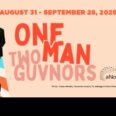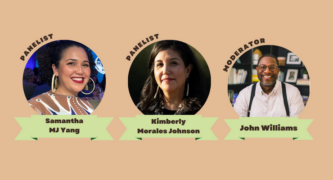
A community conversation featuring prominent Tongva tribal members will take place next week to foster understanding and solidarity with indigenous communities in Altadena.
The “Let’s Talk, Let’s Listen Community Series: Conversation with Tongva Women” event will bring together indigenous leaders to discuss tribal history, land rights, and recovery efforts following the Eaton Fire.
The dialogue will take place on Wednesday, April 23, from 5:30 to 7:30 p.m. at the Altadena Library, located at 600 E. Mariposa St. in Altadena. It is free to attend.
The event features two distinguished panelists from the Gabrieleno Tongva San Gabriel Band of Mission Indians: Samantha MJ Yang, an indigenous scientist and cultural preservationist, and Kimberly Morales Johnson, Tribal Secretary and Los Angeles City/County Native American Indian Commissioner.
John Williams, Executive Director of The Center for Restorative Justice (formerly the Center for Racial Reconciliation), will moderate the discussion. Williams brings decades of experience creating what he describes as “a soft place for hard conversations” where individuals and communities can explore “the multifaceted and destructive narratives of race and racism within the American context with the hope of authentic reconciliation.”
The conversation will address several critical questions, including: “What did it take to be given a parcel of land in Altadena?”, “How were the Tongva Tribe members impacted by the Eaton Fire?”, “How will recovery look for the Tongva tribe in Altadena?”, and “How can we build collective solidarity and power with the Tongva Tribe in Altadena in this challenging time?”
Yang, who serves as the Tongva Land Return Coordinator for the Tongva Taraxat Paxaavxa Conservancy, combines scientific training with traditional knowledge in her work preserving indigenous environmental practices. She holds a Bachelor of Science degree from California State University at Long Beach Puvungna and a certificate in Science Illustration from Cal State Monterey. As an artist, she works as a digital illustrator, animator, and traditional painter, using these skills to highlight “the beautiful nature that Creator has put on this earth as well as the often unheard culture of her tribe.” One of her notable creative projects includes a short film animation of “The Rainbow Bridge,” also known as the dolphin creation story.
Johnson, who has served as a Los Angeles City/County Native American Indian Commissioner during two periods (2001-2005 and again from 2020 to present), is currently pursuing a Ph.D. in Native American Studies at UC Davis. She earned a Master’s in Public Health in 2010 and has taught Diabetes Education with Riverside San Bernardino County Indian Health. Johnson also worked as a Special Education Teacher in Pomona for approximately ten years.
She co-founded the Tongva Taraxat Paxaavxa Conservancy, where she serves as both Executive Director and Vice President. Her passion centers on “telling the story of the Tongva with, by and for the community.”
Johnson comes from a family with deep ties to tribal leadership—her father served as tribal chairman and was one of the first to serve as a Native American Monitor for the State of California.
Williams holds degrees from two prestigious California institutions: an undergraduate degree from UC Berkeley and a law degree from USC Law School. After a successful 20-year legal career, he closed his law practice to focus fully on teaching and racial reconciliation work. He currently serves as an adjunct professor at Azusa Pacific University and Life Pacific College, teaching courses on Race, Reconciliation and Ministry.
Under Williams’ leadership, the Center for Restorative Justice has evolved significantly. It was founded in 2016 as the Center for Racial Reconciliation at Fellowship Monrovia Church “during the tumultuous summer that saw a rise in racial violence in the United States.” In November 2023, the organization transformed from its church-based origins to an independent nonprofit. Williams articulates the organization’s vision as “restoring history… restoring relationships… restoring cultures and communities that have been negatively impacted by systemic racism and systemic oppression.” The Center’s methodology includes what they call “pilgrimages” rather than tours, which traverse Pasadena’s historical sites.
The event is organized by several community organizations, including Pasadenans Organizing for Progress (POP!), the Pasadena Community Job Center (“Where You Can Trust — Where You Can Rely On”), the Clergy Community Coalition (“One Church. One People. One Purpose”), and The Center for Restorative Justice.
This conversation continues the work of addressing historical injustices while building more equitable futures for indigenous communities in Southern California, particularly in light of recent challenges like the Eaton Fire.














 0 comments
0 comments


